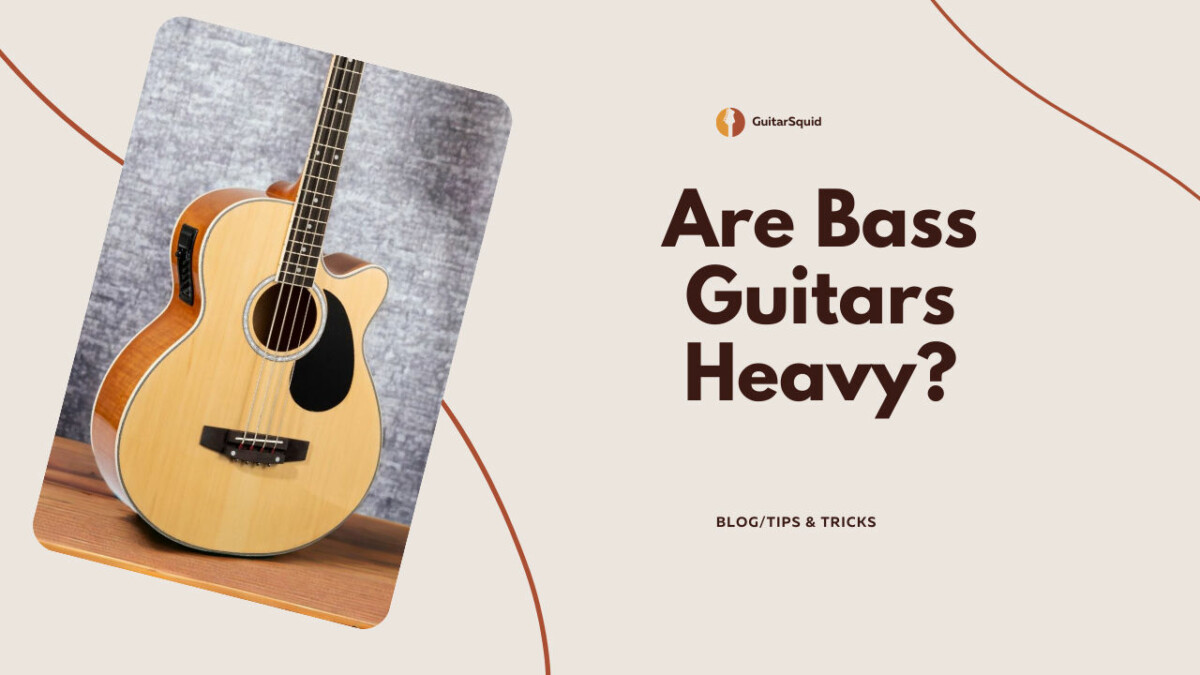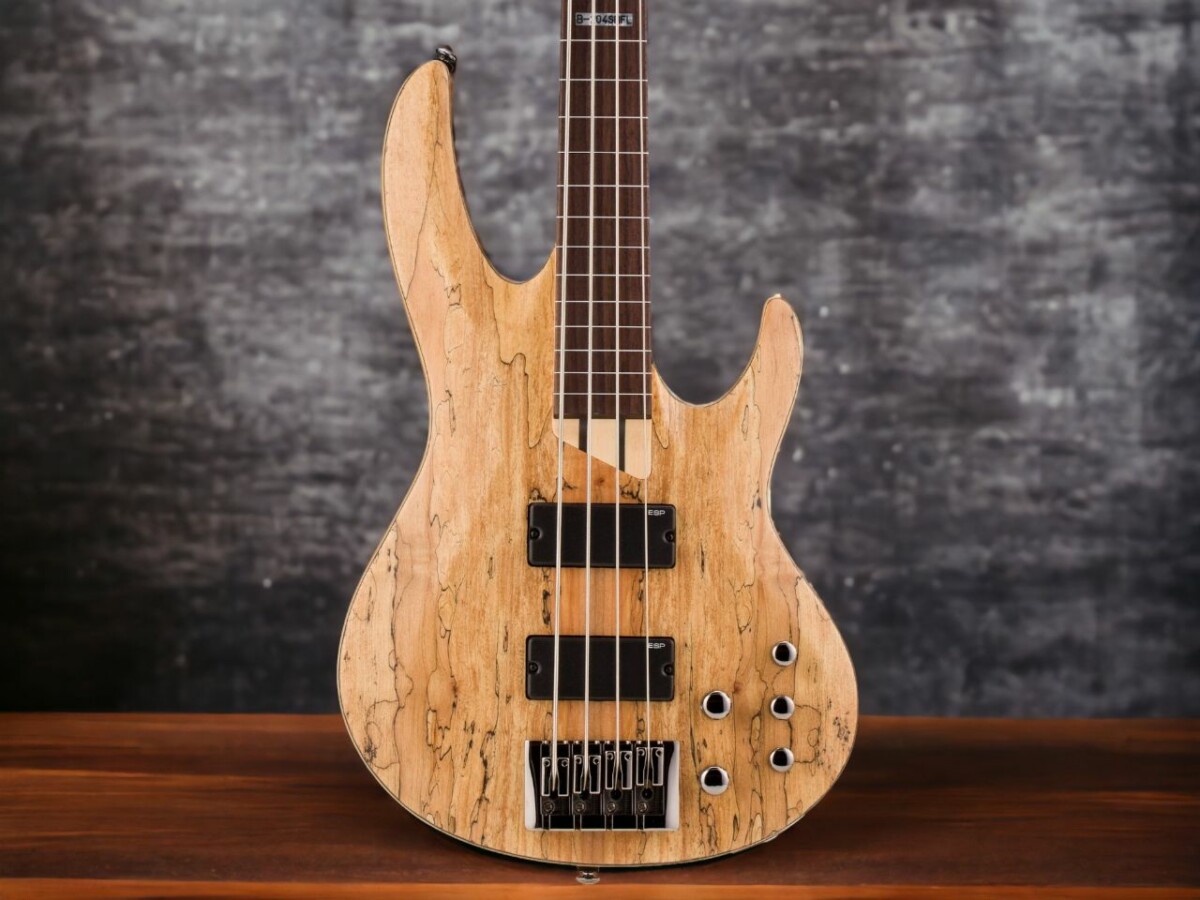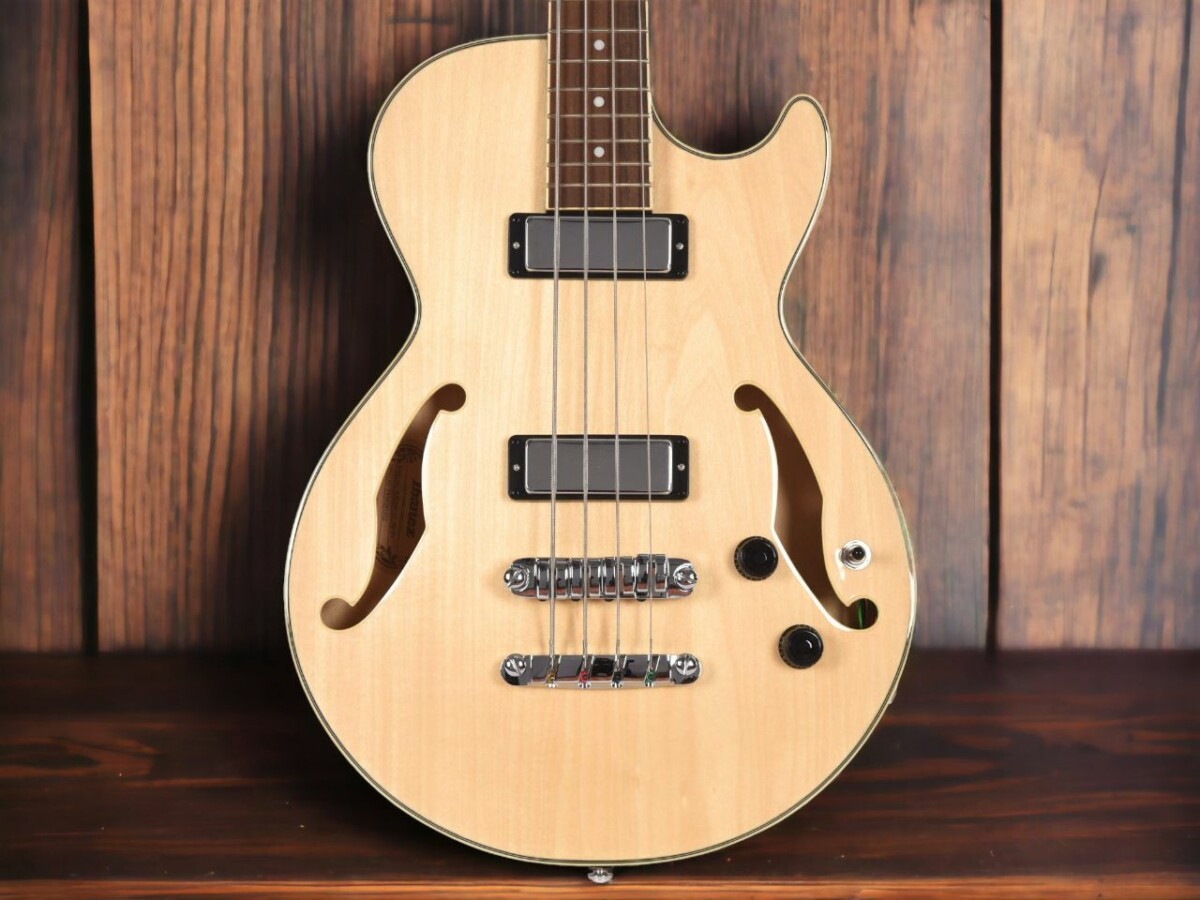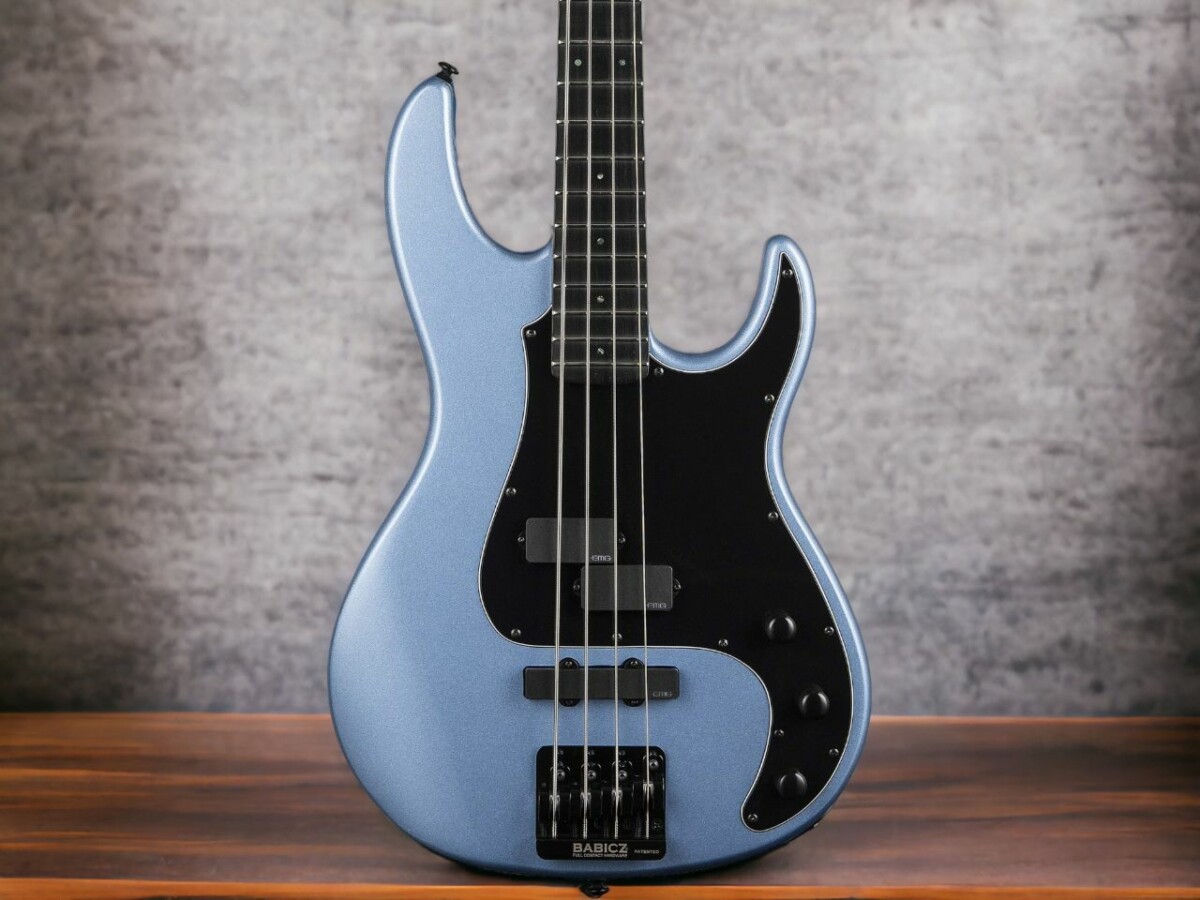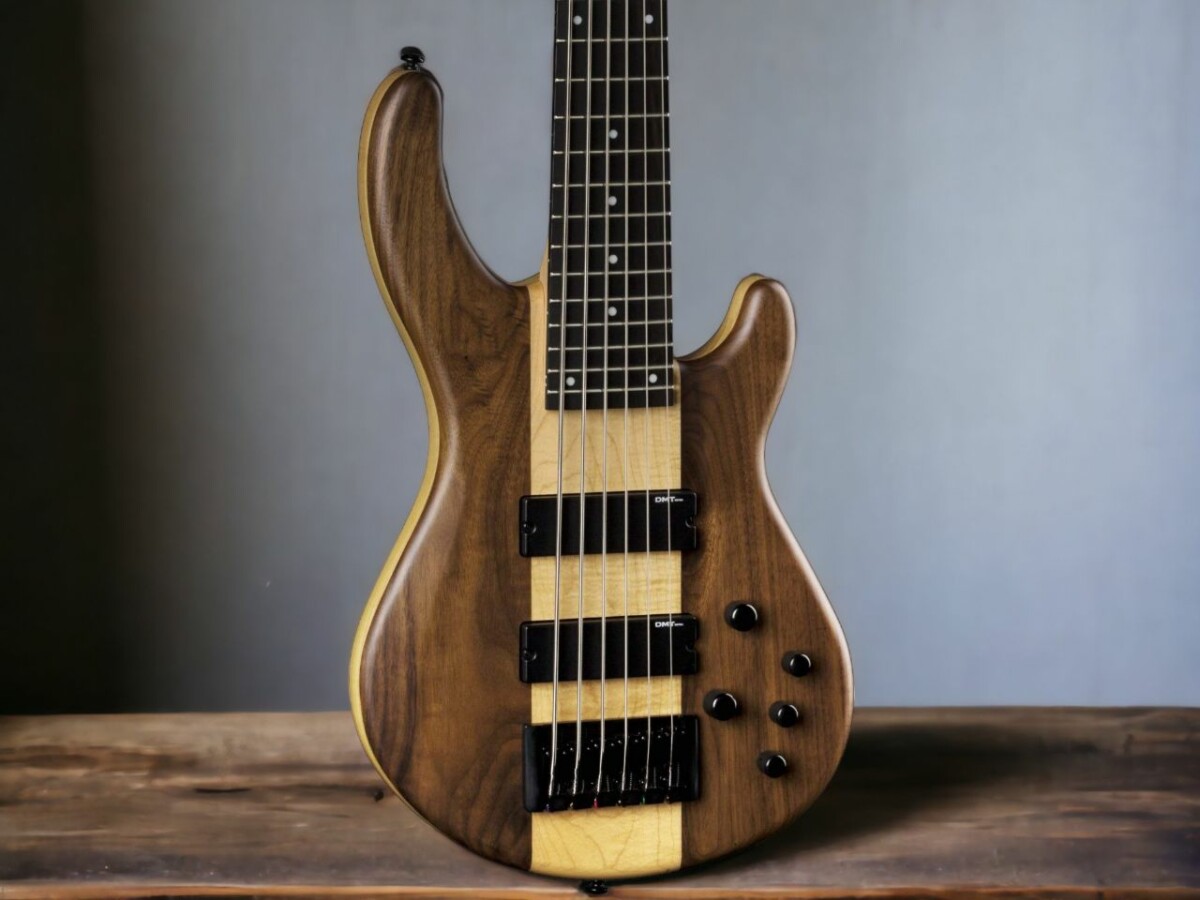Get ready to dive deep into the world of bass guitar weights. It’s not as cut and dry as you might expect! What feels like a ton of bricks to one person might feel like a feather to the next.
Throughout this exploration, you’ll hear from various bass players sharing their own unique experiences, highlighting that weight is a super personalized thing.
So, buckle up, get ready to shake up your beliefs, and find out there’s no straightforward answer to the question, ‘Are bass guitars heavy?’
Understanding Bass Guitar Weights: A Player’s Perspective
Bass guitars tend to weigh more than your average electric guitar because they have bigger bodies and chunkier necks. They generally sit in the ballpark of 8 to 12 pounds (3.6 to 5.4 kg), but remember, this can vary. Depending on the model and the materials it’s crafted from, you might find some a little lighter or heavier. Always best to test one out to see what feels right! On another note, have you ever wondered whether using a capo on a bass guitar is feasible? It’s one of those intriguing questions many bassists ask.
As a bass guitarist, the whole concept of ‘heavy’ is pretty subjective, you know? It really depends on what you’re comfy with, how the guitar balances and your own personal willingness to take on weights that can range from just under 9 pounds to over a hefty 10.5 pounds.
But here’s the thing, it’s not all about what the scales say. You’ve got to consider how the weight is spread out on the guitar. Trust me, the balance can make a massive difference to how long you can keep jamming and your overall experience.
Sure, it’s cool to hear what other players have to say, it can be super informative. But just remember, we’re all different. What feels like a ton of bricks to one person might be a feather to another. While we’re discussing bass intricacies, there’s a widespread query among players: can a bass guitar damage a guitar amp? Worth checking out if you’re considering experimenting with amps.
At the end of the day, picking a bass guitar is a deeply personal choice. Weight is just one piece of the puzzle, there’s so much more to think about. But hey, that’s part of the fun, right?
The Role of Balance in Evaluating Bass Guitar Weight
Looking at the weight of a bass guitar? Hold up, don’t just focus on the pounds. There’s a whole lot more to it, my friend. Balance plays a massive role, and it’s crucial you don’t ignore it. It’s not just about the heavy metal in your hands, but how it’s spread out across the instrument. Trust me, when it comes to comfort, balance is the real MVP.
Let’s break it down a bit:
- A balanced bass? That’s your ticket to jamming out for hours without feeling like you’ve done an intense workout.
- The strap button’s location and how the weight spreads across the body and neck? That’s what’s going to make or break the balance.
- A bass that’s top-heavy can really mess with your shoulder and wrist. Hello, unwanted pain after long jam sessions. And speaking of things that could potentially harm, do you know if a bass guitar can go bad over time? It’s a curious topic many bassists mull over.
Personal Accounts of Handling Different Bass Guitar Weights
Let’s get real about bass guitar weights, shall we? From the perspective of different players, the weight of the bass can be a make-or-break factor. Some have spoken about the physical toll that lugging around a heavier bass can take, especially during those marathon jam sessions. One player, for instance, swears by basses that clock in under 9 pounds. They claim anything heftier just cramps their style when they’re trying to rock out.
On the flip side, there’s this other player who’s totally cool strumming away on a bass that’s 10.5 pounds or even heavier. What’s the secret, you ask? Well, it’s all about striking that perfect balance. According to these players, even a hefty bass feels manageable if it’s well-balanced.
What’s interesting is how differently players perceive what qualifies as ‘heavy’ when it comes to bass guitars. It’s a pretty subjective topic, showing how unique each player’s preferences can be. It’s all about finding that sweet spot between weight and balance that lets you jam out in your own style.
The Subjectivity of a ‘Heavy’ Bass Guitar
You might be tempted to stick labels on bass guitars based on their weight, but remember, what might feel like a ton of bricks to you might seem light as a feather to someone else. It’s all about how you perceive things and your personal weight preferences.
Consider this:
- One man’s feather-light bass could be another man’s unbearable boulder.
- If a bass is well-balanced, it could counteract a heavier weight, making it a breeze to handle during those never-ending gigs.
- The genre of music and your unique playing style can sway whether you’re more into a heavier or lighter bass.
The Spectrum of Player Preferences for Bass Guitar Weight
So, let’s take a deep dive into the whole gamut of what bass players prefer in terms of their instrument’s weight.
It’s wild how much opinions can differ – there’s no one-answer-fits-all here. Maybe you’re all about that featherlight vibe, with a bass that’s under 9 pounds being your sweet spot. Or on the flip side, there could be another bassist out there who’s totally cool with rocking a 10.5-pound beast.
And let’s not forget how important balance is in this equation – for some of us, the perfect weight is nothing without that just-right balance. It’s always fascinating to hear from you guys about your experiences with different weights of bass guitars – your stories and feedback are pure gold.
One thing’s for sure, the definition of a ‘heavy bass’ is a total moving target, varying massively from player to player. That just goes to show how subjective the whole concept of what makes a bass guitar ‘heavy’ really is.

